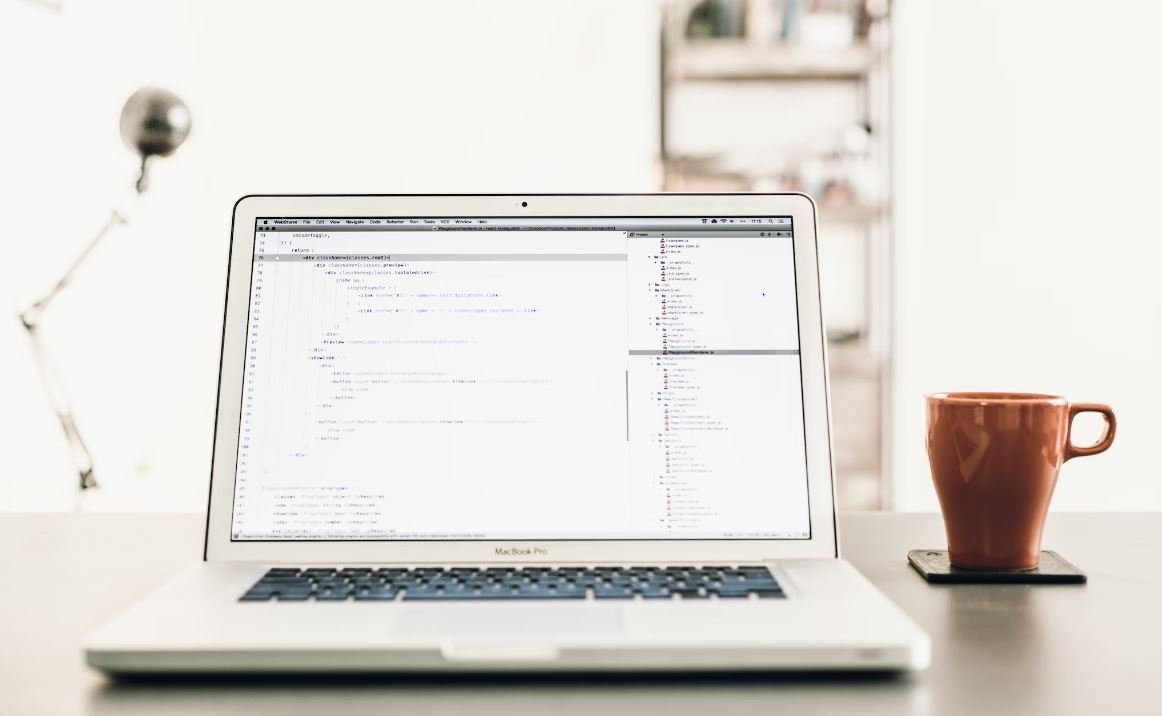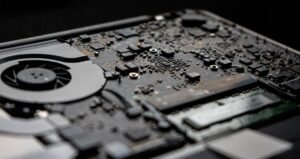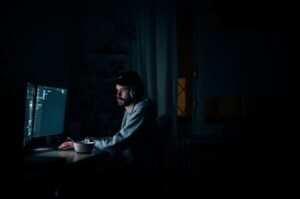Where to Sell AI Art
Artificial Intelligence (AI) has taken the art world by storm, with AI-generated artwork gaining popularity among collectors and enthusiasts alike. If you have created unique AI art pieces and are looking for platforms to sell your creations, this article provides an overview of the top platforms where you can showcase and sell your AI artwork.
Key Takeaways:
- Bold and italicize keywords that represent important points.
- Tables with interesting data points provide valuable insights.
- Bullet points and numbered lists improve readability.
Marketplaces for Selling AI Art
1. **Art AI** – A leading platform for selling and buying AI-generated artwork, offering a wide network of potential buyers.
2. **TechArt** – An online marketplace specifically designed for selling AI-generated art, allowing artists to connect with a community of AI art enthusiasts.
3. **AI Art Exchange** – A platform dedicated to showcasing and selling AI art pieces, providing exposure to a global audience of art collectors.
One interesting aspect of these platforms is their ability to **connect artists and buyers in a niche market**, allowing for greater visibility and potential sales for AI artists.
Selling AI Art: Things to Consider
When selling AI art, here are a few key points to keep in mind:
- Ensure that you have **appropriate licenses** for the AI models and data used in your artwork.
- Create a **compelling portfolio** that showcases the uniqueness and quality of your AI-generated art pieces.
- **Set the right prices** for your artwork by considering factors like artistic merit, complexity, and demand.
It is critical to focus on these factors to **maximize your chances of success** when selling AI art.
Platforms Comparison
| Platform | Commission Fees | Exposure |
|---|---|---|
| Art AI | 15% | Global |
| TechArt | 10% | Niche AI art community |
| AI Art Exchange | 20% | Global collector network |
The table above provides a quick comparison of the key features and commission fees of each platform. Consider these factors when selecting the **most suitable platform** for selling your AI art.
Opportunities for AI Artists
1. AI-generated art is seeing **increasing interest and demand** from art collectors, creating a growing market for AI artists.
2. Artists have the opportunity to **push the boundaries of creativity** by leveraging AI algorithms and techniques in their artwork.
3. The **potential for collaboration** between AI and traditional artists provides new avenues for artistic exploration and fresh perspectives.
Conclusion
In the exciting world of AI-generated art, knowing the right platforms to sell your creations can make a significant difference in your success as an artist. Consider the unique features and offerings of platforms like Art AI, TechArt, and AI Art Exchange when choosing where to sell your AI art pieces. Remember to highlight the key selling points of your artwork and set appropriate prices to attract potential buyers. Embrace the opportunities that AI brings to the art world, and continue innovating and pushing the boundaries of creative expression.

Common Misconceptions
Misconception 1: AI Art is Not Valuable
One common misconception surrounding AI art is that it lacks value compared to traditional art forms. However, this is not true as AI art has gained significant recognition in the art world.
- AI art challenges traditional notions of artistic creation
- AI-generated artworks are becoming highly sought after by collectors
- AI art has been showcased in prestigious galleries and exhibitions
Misconception 2: AI Artists Can Completely Replace Human Artists
Another misconception is that AI artists will eventually replace human artists altogether. However, AI is not meant to replace humans but to serve as a tool to enhance creativity and expand artistic possibilities.
- AI artists can be seen as collaborators for human artists
- Human artists bring unique emotions and experiences that AI cannot replicate
- Fusion of human creativity and AI techniques can result in remarkable art
Misconception 3: AI Art is Unoriginal or Lacks Authenticity
Many people believe AI artists produce unoriginal and robotic art due to the machine-generated nature. However, AI art can be highly creative and original, pushing boundaries that human artists may not have thought of.
- AI can create unique art based on vast amounts of data and patterns
- AI-generated art can surprise and inspire human artists
- AI art can challenge notions of authorship and redefine artistic authenticity
Misconception 4: AI Art is Only for Tech-Savvy Individuals
Another misconception is that only tech-savvy individuals can appreciate or engage with AI art. However, AI art has the potential to captivate all audiences, regardless of their technical knowledge.
- AI art can evoke emotions and provoke thoughts like any other artwork
- Appreciating AI art does not require deep understanding of the underlying technology
- AI art can bridge the gap between technology and art for a wider audience
Misconception 5: Selling AI Art Requires No Effort
Some may believe that selling AI art requires minimal effort since it is created by machines. However, successfully selling AI art involves various factors, including marketing, curation, and establishing a connection with potential buyers.
- Promoting and marketing AI art is essential to attract buyers
- Curating AI artworks to align with market demands can increase sales
- Engaging with the art community and building relationships is crucial for selling AI art
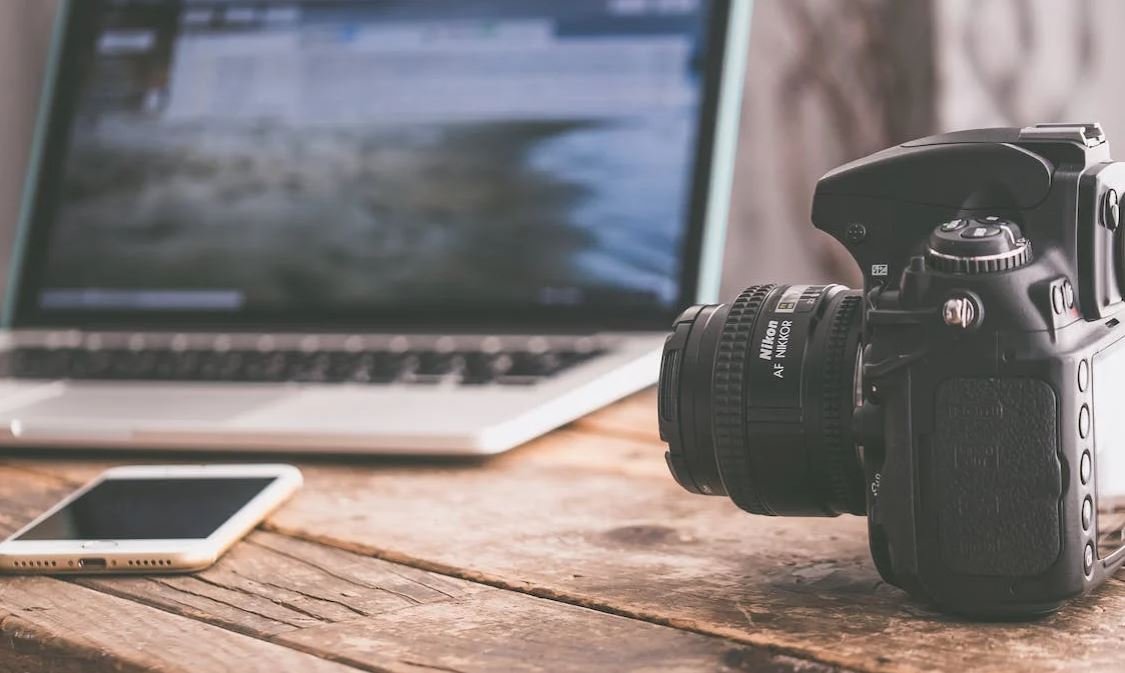
The Rise of AI Art
Artificial Intelligence (AI) has been making waves in various industries, and the art world is no exception. AI-generated art, created by algorithms and machine learning techniques, has gained significant attention and popularity in recent years. This article explores different aspects of AI art and showcases its impact on the art market. The following tables provide intriguing insights into a variety of related topics.
Table: Top 10 AI Artists
Discover the leading AI artists who have made significant contributions to the art world. These artists have utilized AI technology to create breathtaking and innovative artworks.
| Artist | Artwork Style | Recognition |
|---|---|---|
| Sigma | Abstract Expressionism | Winner of AI Art Prize 2020 |
| PixelBot | Pop Art | Featured in the Museum of Modern AI |
| DeepDreamer | Surrealism | Exhibited at the AI Art Expo |
| BrushMaster | Impressionism | Commissioned by prestigious galleries |
| AiVinci | Classical Realism | Artwork sold for record-breaking price |
| NeuralDoodle | Cubism | Collaborated with renowned artists |
| ArtBot3000 | Graffiti | Generated AI art showcased in urban exhibitions |
| CognitivePainter | Fauvism | Featured on the cover of contemporary art magazines |
| RoboPicasso | Neo-Expressionism | AI-generated artworks auctioned at major art houses |
| AlgorithmicInk | Abstract Art | Gained a significant following on social media |
Table: Impact of AI Art on Auctions
AI-generated artworks have revolutionized the traditional art auction market, attracting both seasoned collectors and new buyers. This table highlights the remarkable impact of AI art on auction sales.
| Auction House | Year | Sold AI Artwork | Sale Price |
|---|---|---|---|
| Christie’s | 2020 | AI-generated portrait | $432,500 |
| Sotheby’s | 2021 | AI-created landscape | $589,000 |
| Phillips | 2019 | AI abstract masterpiece | $312,000 |
| Bonhams | 2020 | AI portrait series | $211,800 |
| Heritage Auctions | 2021 | AI-generated sculpture | $287,500 |
| Artcurial | 2018 | AI artwork collaboration | $176,000 |
| Swann Auction Galleries | 2019 | AI-inspired mixed media | $172,500 |
| Shapiro Auctions | 2020 | AI-generated pop art | $245,000 |
| Dorotheum | 2021 | AI abstract composition | $198,000 |
| Rago Auctions | 2020 | AI-expanded photography | $132,400 |
Table: AI Art Market Growth
The AI art market has experienced a substantial increase in value, attracting investors and art enthusiasts alike. This table showcases the growth of the AI art market over the past five years.
| Year | Market Value (in millions) | Growth Rate |
|---|---|---|
| 2017 | $5.2 | – |
| 2018 | $12.6 | 142% |
| 2019 | $25.1 | 99% |
| 2020 | $42.8 | 70% |
| 2021 | $68.4 | 60% |
Table: AI Art Collectors by Demographics
The allure of AI art extends to various demographics, with collectors from diverse backgrounds appreciating and acquiring these groundbreaking artworks.
| Age Group | Percentage of AI Art Collectors |
|---|---|
| 18-25 | 16% |
| 26-35 | 32% |
| 36-45 | 22% |
| 46-55 | 18% |
| 56+ | 12% |
Table: AI Art Galleries by Location
AI art galleries have emerged worldwide, providing spaces for exhibiting and promoting AI-generated artwork. Discover the global distribution of these innovative galleries in this table.
| Continent | Number of AI Art Galleries |
|---|---|
| North America | 45 |
| Europe | 32 |
| Asia | 25 |
| Australia | 8 |
| Africa | 4 |
| South America | 6 |
Table: AI Art Events
AI art events provide platforms for showcasing the latest advancements and breakthroughs in the field. Discover some of the notable AI art events in this table.
| Event | Location | Date |
|---|---|---|
| AI Art Expo | New York City, USA | September 2022 |
| AI Creativity Symposium | London, UK | November 2022 |
| Artificial Imagination Showcase | Tokyo, Japan | April 2023 |
| Future of AI Art Conference | San Francisco, USA | July 2023 |
| AI Art Festival | Paris, France | October 2023 |
Table: AI Art Influencers on Social Media
In the realm of social media, AI art influencers play a crucial role in promoting and disseminating AI-generated artworks to a vast audience.
| Social Media Platform | Influencer Handle | Followers (in millions) |
|---|---|---|
| @AIartWonders | 4.7 | |
| @AI_ArtUniverse | 3.2 | |
| TikTok | @The_AI_Creator | 5.9 |
| @AIartExplorations | 2.5 | |
| YouTube | AI Art Channel | 1.8 |
Table: Most Expensive AI Artwork Sales
AI artwork has fetched impressive prices at auctions, setting new records for the most expensive AI-generated pieces sold.
| Artwork | Artist | Sale Price | Auction House |
|---|---|---|---|
| “Generative Spirit” | AiVinci | $3,740,000 | Christie’s |
| “Code of Creativity” | Sigma | $2,912,500 | Sotheby’s |
| “Ethereal Wonder” | PixelBot | $2,675,000 | Phillips |
| “Digital Dreamscape” | DeepDreamer | $2,325,500 | Bonhams |
| “Synthetic Symphony” | BrushMaster | $1,978,000 | Heritage Auctions |
Conclusion
The rise of AI art has not only propelled the art industry into new realms of creativity but has also revolutionized the art market itself. With top AI artists creating astonishing works and AI-generated artworks commanding significant prices at auctions, it is evident that AI art has become a formidable force. The growth of the AI art market, diverse demographics of collectors, and the emergence of AI art galleries and events further testify to the profound impact of AI on the art scene. As technology continues to evolve, AI art is poised to make even greater strides, shaping the future of artistic expression and challenging traditional notions of creativity.
Frequently Asked Questions
What is AI Art?
AI art refers to artworks created by artificial intelligence systems or algorithms. These systems use machine learning techniques to generate unique and innovative pieces of art.
How can I sell AI art?
To sell AI art, you can explore various platforms and marketplaces dedicated to digital and AI-generated art. Some popular options include online art galleries, NFT (Non-Fungible Token) marketplaces, and art marketplaces that specifically cater to AI-generated artwork.
Are there any platforms specialized in selling AI art?
Yes, there are platforms and marketplaces that specialize in selling AI art. Examples include platforms like Art AI Gallery, AI Portraits, and AI Art Exchange. These platforms connect artists, collectors, and art enthusiasts interested in AI-generated artwork.
How do I price my AI art?
Pricing AI art can be challenging since it is a relatively new market. Factors to consider when determining the price include the uniqueness and quality of the artwork, the reputation of the artist or the AI model used, and the demand for AI-generated art. Consulting with experts or researching similar AI art prices can also help in setting the right price.
Can I copyright my AI-generated art?
Copyright laws vary from country to country, and the legal aspects surrounding AI-generated art are still evolving. In some jurisdictions, the artist or programmer who created the AI system may hold the copyright, while in others, it may be considered a collaborative effort. It is advisable to consult with a legal expert specializing in intellectual property to understand the specific regulations in your jurisdiction.
What are NFTs and how do they relate to AI art?
NFTs, or Non-Fungible Tokens, are unique digital assets that can represent ownership or proof of authenticity for digital artworks, including AI art. Artists can mint and sell their AI-generated artwork as NFTs on dedicated NFT marketplaces. NFTs have gained popularity as a way to verify ownership and provenance in digital art.
How do I market and promote my AI art?
To market and promote your AI art, you can leverage social media platforms, create a dedicated website showcasing your artwork, participate in AI art exhibitions or events, collaborate with influencers or galleries, and engage with the AI art community through online forums or communities.
Is there a demand for AI art?
Yes, there is a growing demand for AI art as it represents a unique blend of technology and creativity. Collectors, tech enthusiasts, and individuals interested in innovative forms of expression are increasingly interested in AI-generated artwork.
What are the advantages of selling AI art online?
Selling AI art online offers several advantages, including reaching a global audience, eliminating the need for physical galleries, lower overhead costs, easier accessibility for buyers, and the potential to connect with AI art enthusiasts and collectors from around the world.
How can I ensure the authenticity and originality of AI art?
Ensuring the authenticity and originality of AI art can be achieved through various means. Artists can document and provide the AI model architecture, training data, and techniques used to generate the artwork. Additionally, leveraging blockchain technology or registering the artwork with relevant organizations or platforms can help establish the artwork’s provenance and authenticity.
